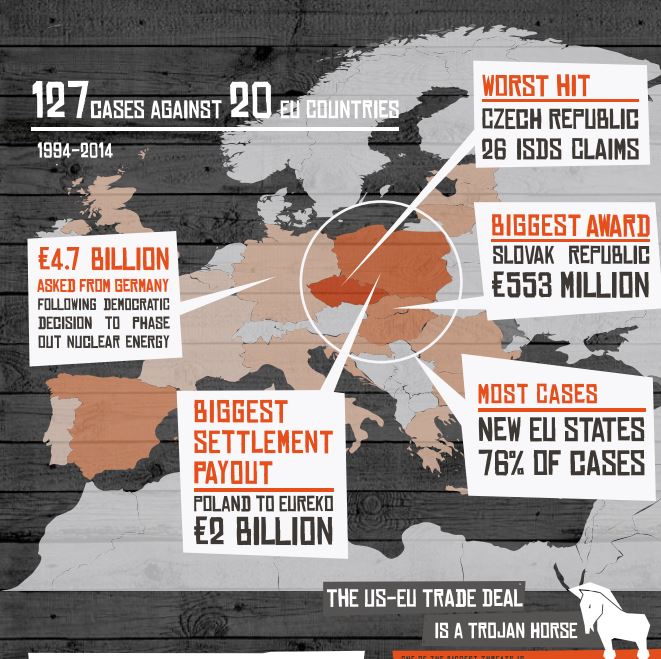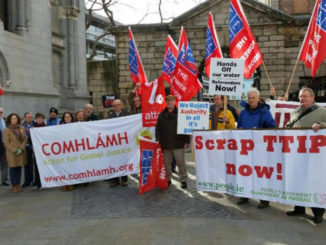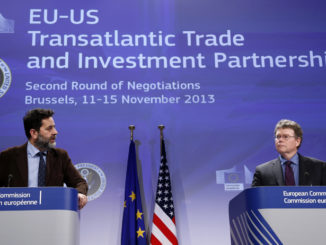
Arc2020 has this week updated our briefing notes on TTIP. This means you can be fully informed with all of the major aspects, controversies and issues related to the Transatlantic Trade and Investment Partnership, especially from an agri-food perspective.
We explain the background – the spin about jobs and growth, in essence, and then begin to unpack all the main problems we see with this corporate power grab.
These notes feature the work and publication of key organisations on both sides of the Atlantic including Friends of the Earth Europe, the Institute of Agriculture and Trade Policy, Corporate Europe Observatory.
We unpack the threat of lowered standards and regulations; corporate influence on negotiations especially ‘investor-state dispute settlement’ (ISDS) and similar regulatory chill developments; the relationship between bad diets and trade deals; lack of transparency, and also the good news – the fact that we are making progress.
Here are some of the highlights you will find if you pop over to the briefing notes page:
- Poland had to pay E2 Billion in an ISDS settlement trying to retain public ownership of its health services.
- Up to 75000 cross-registered firms could gain access to ISDS.
- Of the 62 ISDS cases in the public domain, these have cost EU member states E30 billion
- New Zealand withdrew laws on plain cigarette packaging after Phillip Morris sued Australia through ISDS for introducing similar laws.
- Draft EU criteria could have banned 31 pesticides containing endocrine disrupting chemicals (EDCs). But these were dumped amid fears of a trade backlash stoked by an aggressive US lobby push
- The average farm size there is 13 times larger than in the EU. There are 13 million people employed in farming in the EU, compared to just 2 million in the US.
The section includes four short videos, a timeline of negotiations, lots of links and further reading, as well as an archive of 2013 and 2014 news and features.
“Bilateral investment treaties may subvert existing internationally agreed upon guidelines and lower tariff and non-tariff barriers to trade, allowing freer import and export of unhealthy food products. For instance, free trade agreements have been directly linked to an increased consumption of soft drinks.”
Anand Grover, UN Right to Health Rapporteur.
More
All ARC2020 news and features on TTIP






1 Trackback / Pingback
Comments are closed.